
MiddleEast Beauties in Portraits (Cont.) Eastern art, Art, Arabian art
Museum of Islamic Art Gallery 7—The Eastern World: Early Iran and Centra Asia, a display of ceramic and metal artifacts from the Seljuq and the Ilkhanid period (c. 12th to 14th century C.E.
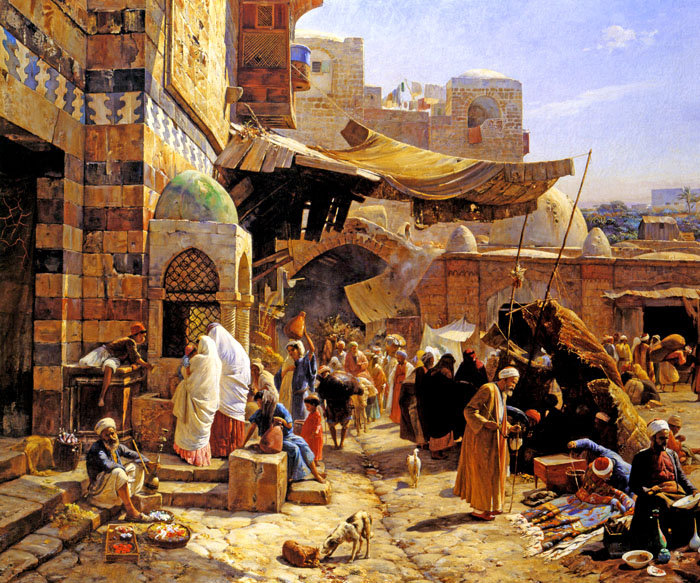
Market In Jaffa 1887 Middle East Orientalist Paint By Gustav Etsy
The modern masters of the last century constitute a major part of Middle Eastern history—they offer us memories from the past that is as rocky as it is glorious. They cannot be forgotten. "We are all responsible to make things clear," says Barakat. "We are the first people who should be concerned about this issue.
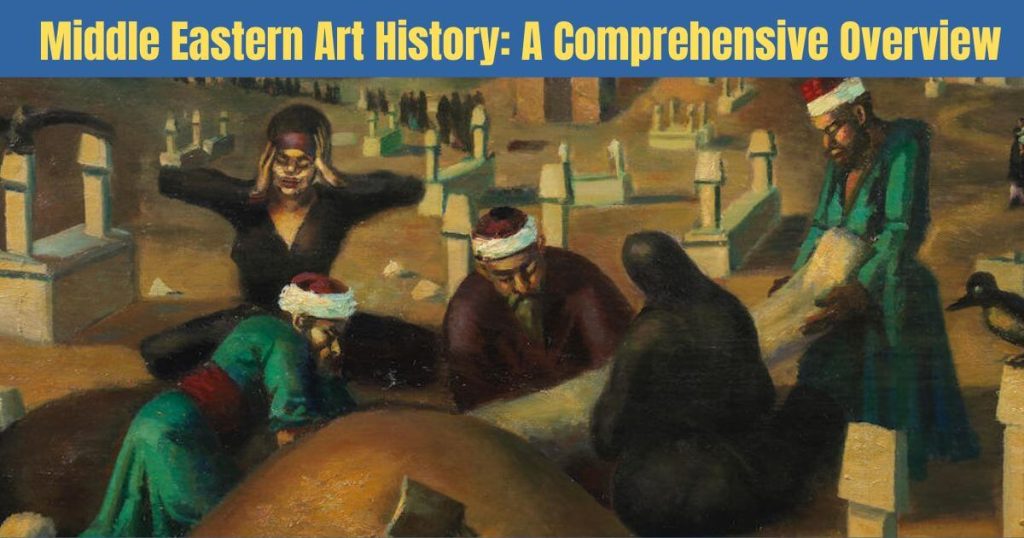
Middle Eastern Art History A Comprehensive Overview
The Mamluks ruled over key lands in the Middle East, including Mecca and Medina. Their capital at Cairo became the artistic and economic center of the Islamic world at this time.. from the Metropolitan Museum of Art's Timeline of Art History. The Art of the Seljuqs of Iran (c. 1040-1157) The Art of the Mamluk Period (1250-1517) Mosque.
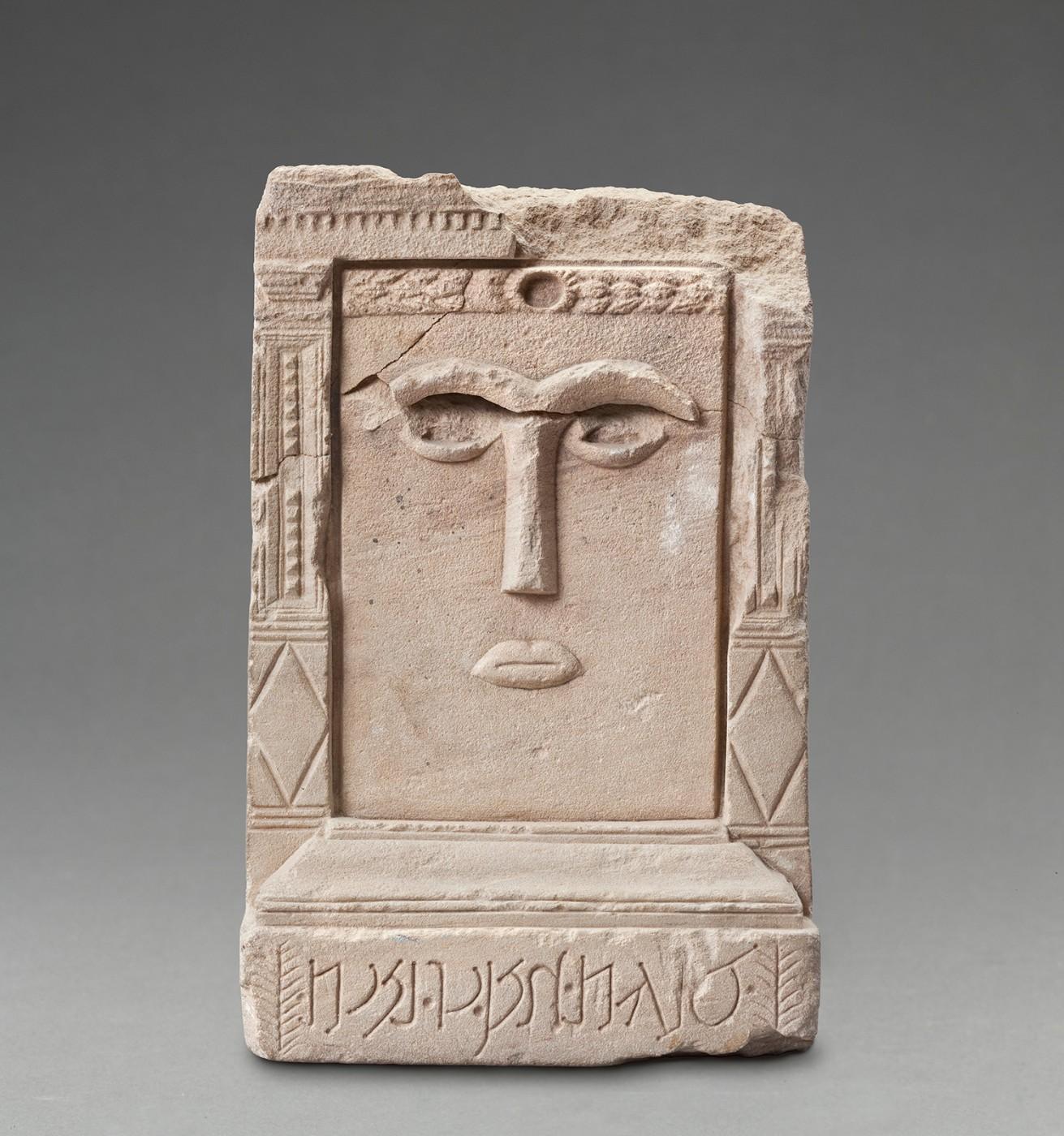
The World between Empires Art and Identity in the Ancient Middle East Art & Object
The Center for Middle Eastern Studies, the Assyrian Foundation of America, and the Naby Frye Assyrian Fund for Culture are pleased to present. Mira Xenia Schwerda. Getty/ACLS Postdoctoral Fellow in the History of Art 2023-2024; IASH Fellow 2022-2023. This talk will take place online; please register in advance on Zoom here: https://bit.ly.
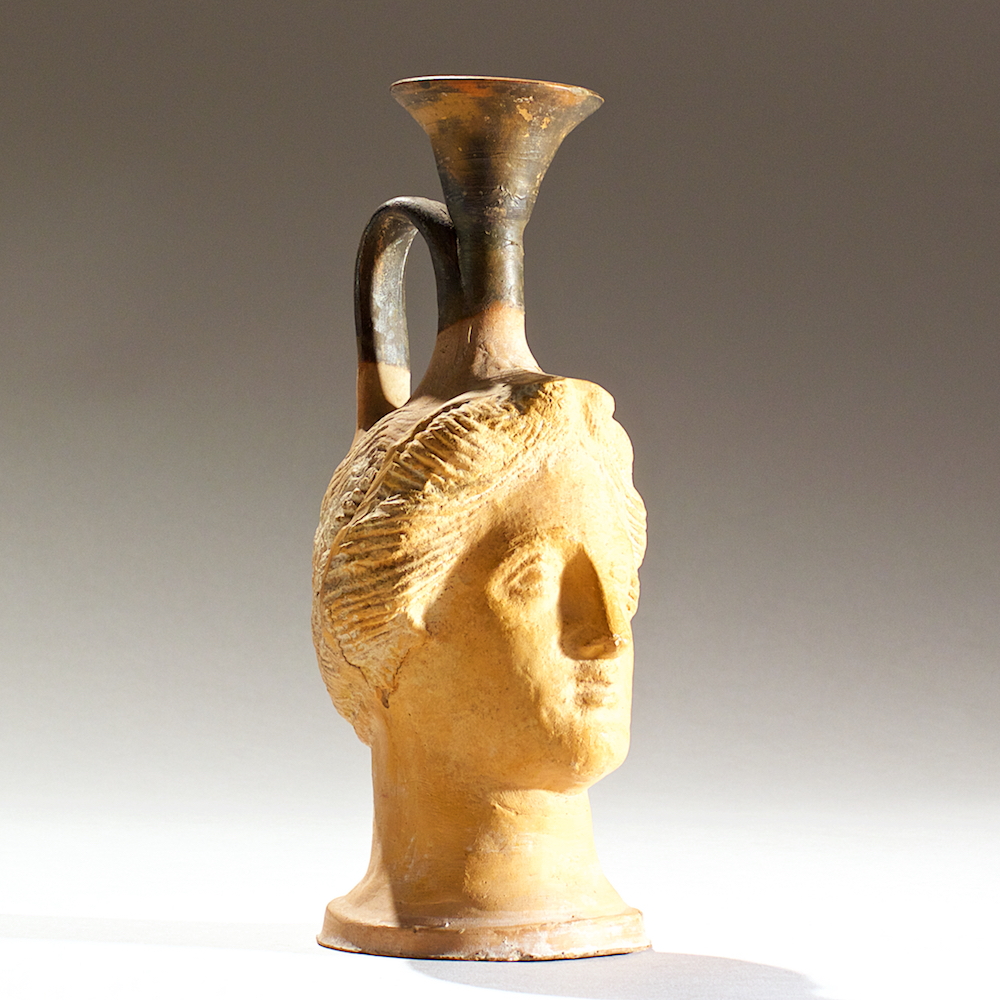
Ancient Middle Eastern Art at The Met and The MAAC Manhattan Art and Antiques Center
Pottery - Early Islamic, Glazing, Firing: There is little pottery of merit from the period of the Umayyad caliphate (661-750). At this time the capital was at Damascus, and the chief interest of the pottery lies in its mingled Mediterranean and Middle Eastern derivation; for example, attempts were made to synthesize the formal repetitive style derived from the ancient Babylonian and Assyrian.

THE CARPET SELLER by ALPHONS MIELICH Islamic art, Arabic art, Islamic paintings
Ari was drawn to the History, Theory, and Criticism of Architecture and Art program because of its strength in modern Middle Eastern art history. Her early research was rooted in the 1990s — a period when prominent nonprofits that supported the arts arrived in the Middle East. With guidance from co-advisors Nasser Rabbat, the director of the.
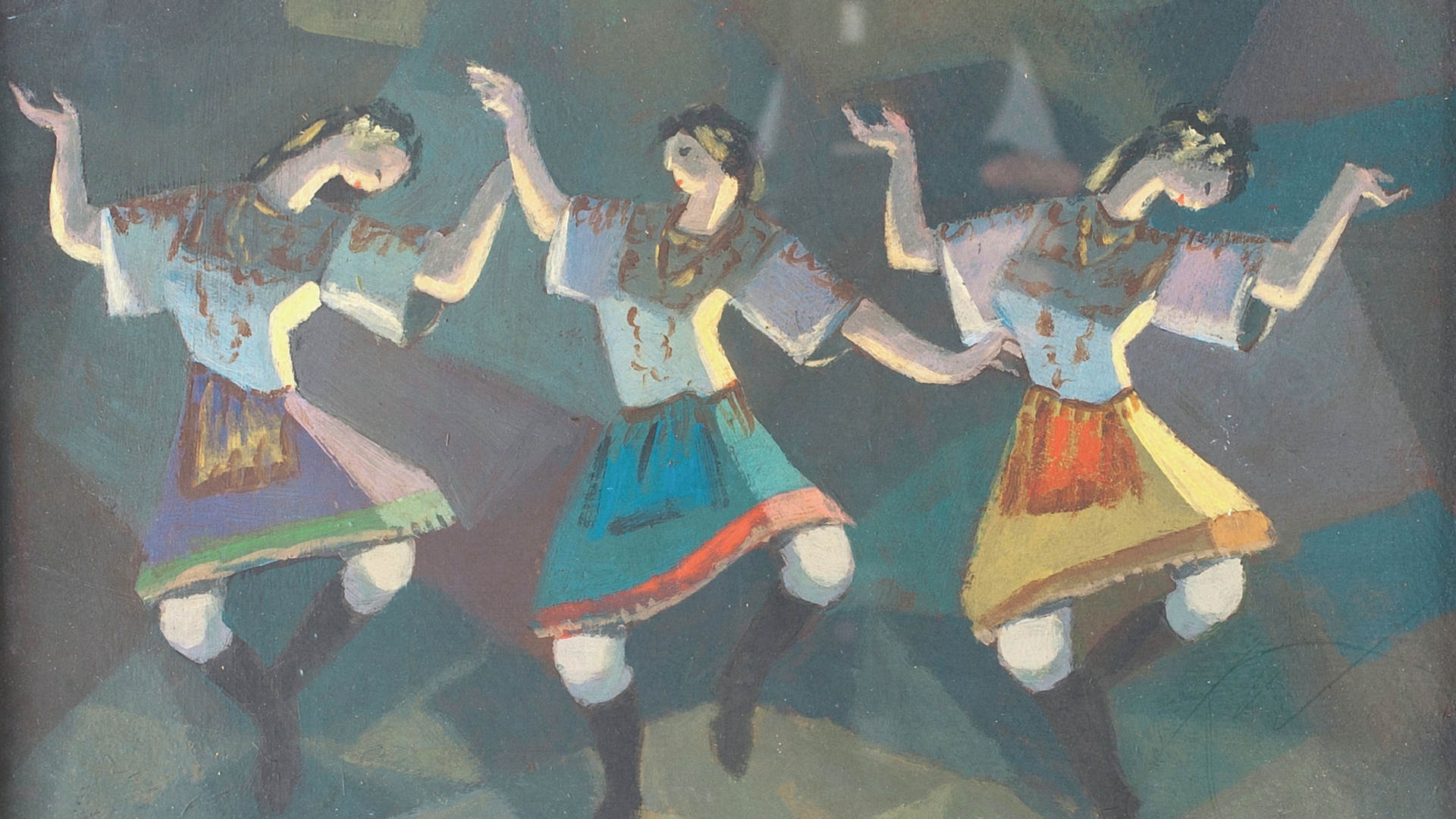
On Preserving A Middle Eastern Art History Part I Harper's Bazaar Arabia
Islamic Art. Islamic art has a long and rich history in the Middle East. The religion of Islam found in the 7th century CE. The art form is rooted in the Islamic faith and reflects the religion's teachings and values. The art inspires and encourages current and meditation on the divine. Islamic art originates in the Middle Eastern Art History.

Ancient Middle Eastern Art at The Met and The MAAC Manhattan Art and Antiques Center
Topic 1: Middle Eastern and Islamic Art. The Middle East (West Asia) forms the eastern edge of the Mediterranean world. Prior to the emergence of Islam as a cultural and political force, it was part of the Greco-Roman and Byzantine worlds, and it continued to play an intermediary role in contacts between Europe, Asia, and even Africa.
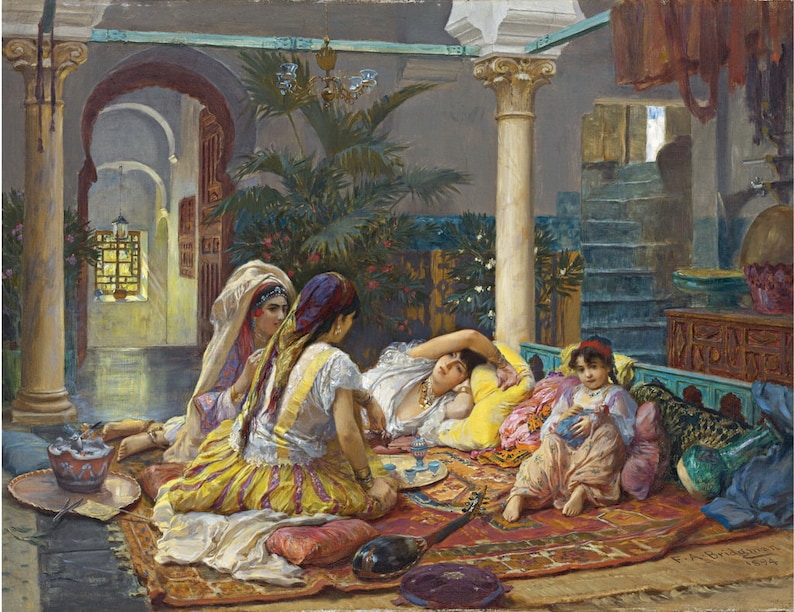
8 Hand Painted Middle East Art by Frederick Arthur Bridgman Etsy
Since the turn of the 21st century, and particularly in the 12 years since Christie's chose Dubai as the site for the first major art auctions of the region, the market for Middle Eastern artists has changed beyond recognition. In less than 20 years the Middle East, North Africa and South Asia (MENASA) region has staged a galloping catch-up.
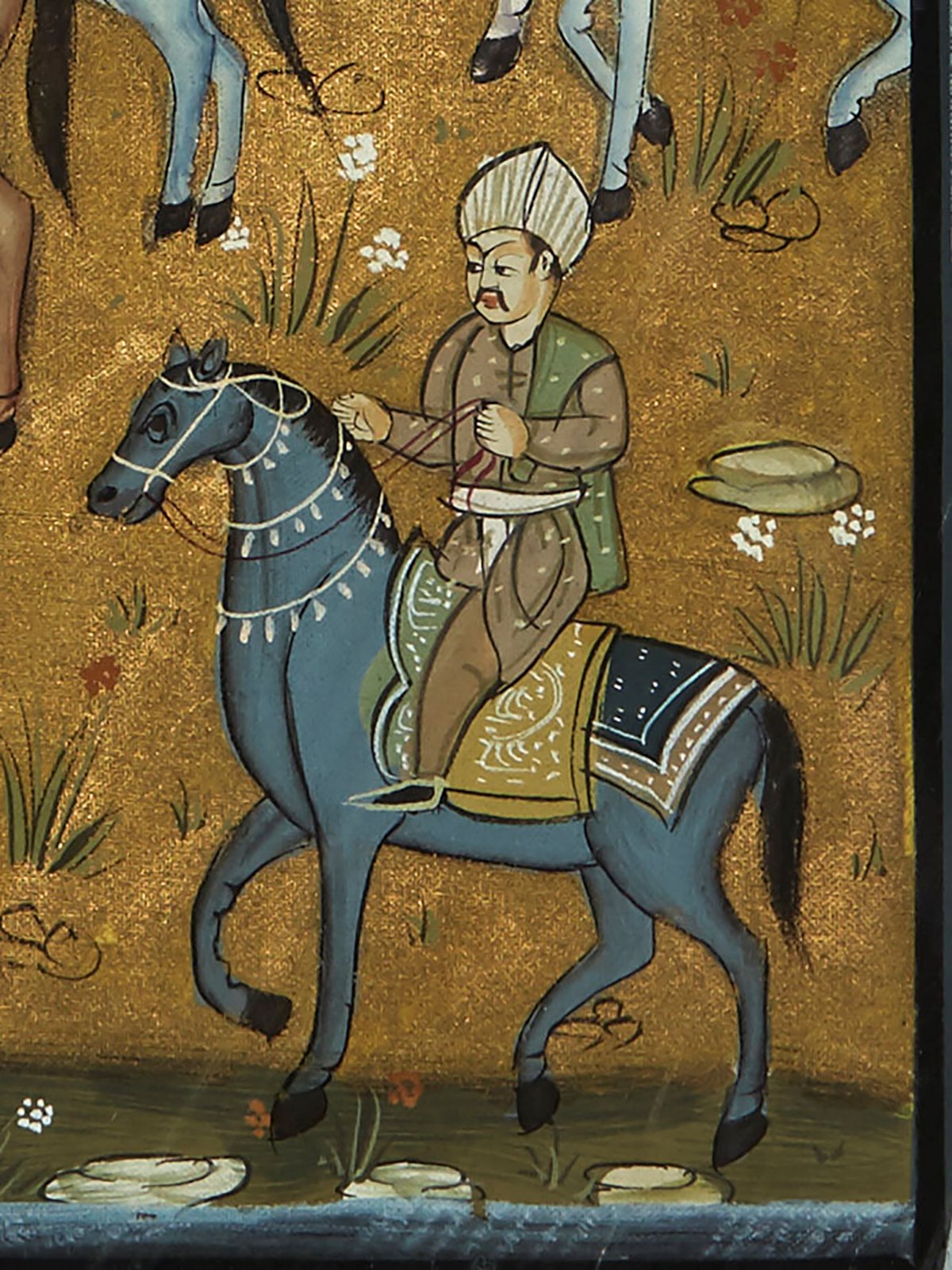
ANTIQUE MIDDLE EASTERN PAINTING ON SILK, 19TH C. eBay
This expanded installation more than triples the display, increasing the art on view to some 250 works. Objects from the 8th to 18th century—made in North Africa, the Middle East, Turkey, India.
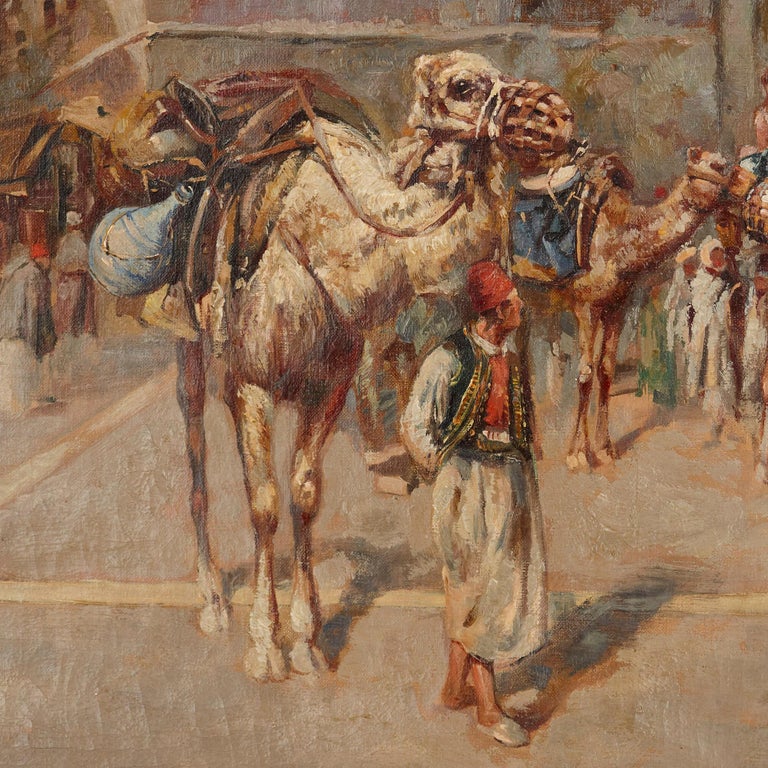
O. F. Perrota Antique Orientalist painting of Middle Eastern scene at 1stDibs
Ancient Middle Eastern Art. The DIA's Asian, Islamic, and Ancient Middle Eastern collections represent a diverse range of cultural traditions and artmaking practices, spanning more than 8,000 years and originating from a vast region that encompasses more than one third of the earth's landmass. Demonstrating both artistic innovation and.

Middle Eastern Art London October 2019 Christie's
Calligraphy is a very important art form in the Islamic world. The Qur'an, written in elegant scripts, represents Allah's—or God's—divine word, which Muhammad received directly from Allah during his visions. Quranic verses, executed in calligraphy, are found on many different forms of art and architecture.
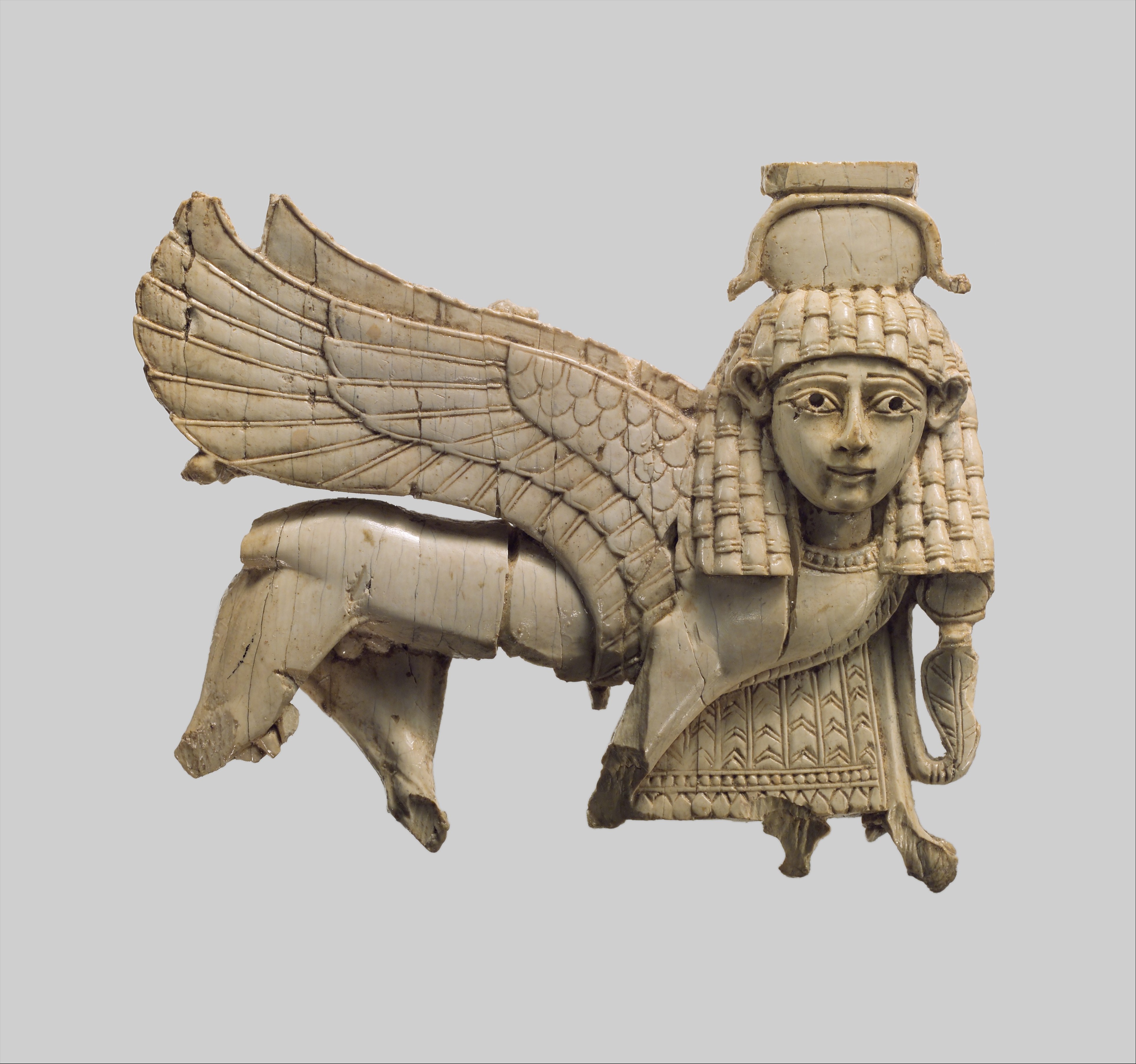
Provenance Research and Attribution Knowledge of Ancient Middle Eastern Art History of Knowledge
Middle East Timeline. Jerico, built on an oasis on the bank of the River Jordan, is the world's oldest city, with a circular tower and encircling wall built of massive stones. Read more. c. 7000BC-c. 6000 BC. Sculptures made of lime plaster from Ain Ghazal in Jordan are among the earliest surviving large-scale statues of the human figure.

صادق تبریزی Yahoo Image Search Results Persian art painting, Persian calligraphy art
Welcome to the Smithsonian Libraries and Archives' Asian and Middle Eastern Research Guide. This is a select list of mostly freely-available resources for students, teachers, and reserachers to learn about Asian, Islamic, and Ancient Near Eastern Art. Please feel free to Contact Us with suggestions for additional resources or with questions.

Shah Abbas Middle eastern art, Art, Persian miniature
The Met's Department of Ancient Near Eastern Art cares for approximately 7,000 works ranging in date from the eighth millennium B.C. through the centuries just beyond the emergence of Islam in the seventh century A.D. Objects in the collection were created by people in the area that today comprises Iraq, Iran, Turkey, Syria, the Eastern Mediterranean coast, Yemen, and Central Asia.

Mohamad Alwahibi, Syrian Artist Art, Middle eastern artists, Arab artists
Islamic arts, literary, performing, and visual arts of the vast populations of the Islamic world from the 7th century onward. Adherents of Islam and those living in Islamic settings have created such an immense variety of literatures, performing arts, visual arts, and music that it virtually defies any comprehensive definition. In the narrowest sense, the arts of the Islamic peoples might be.